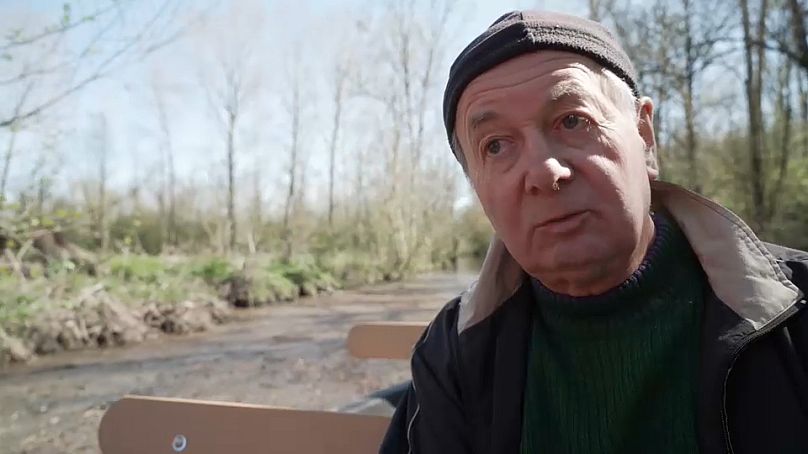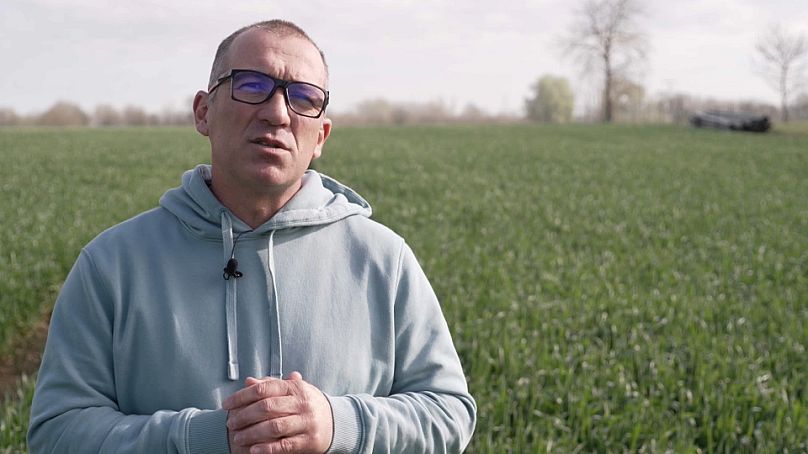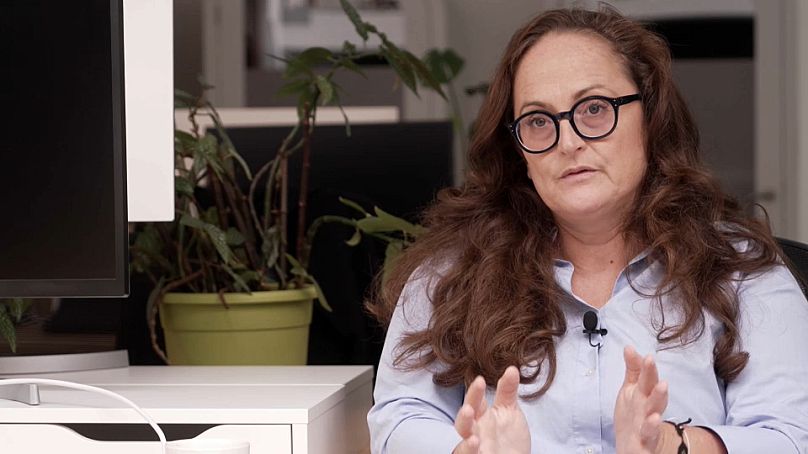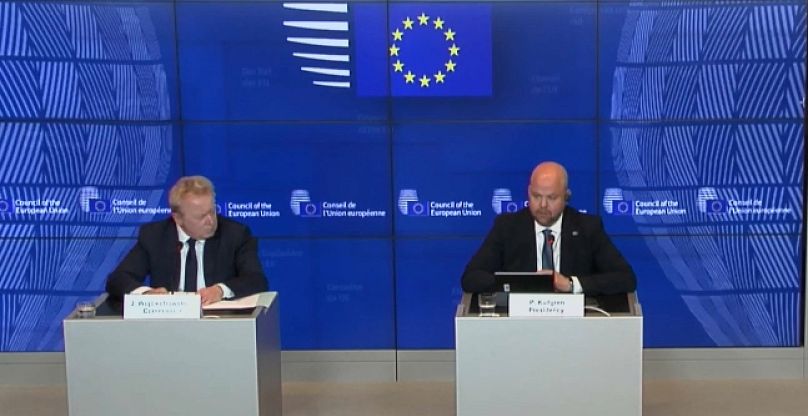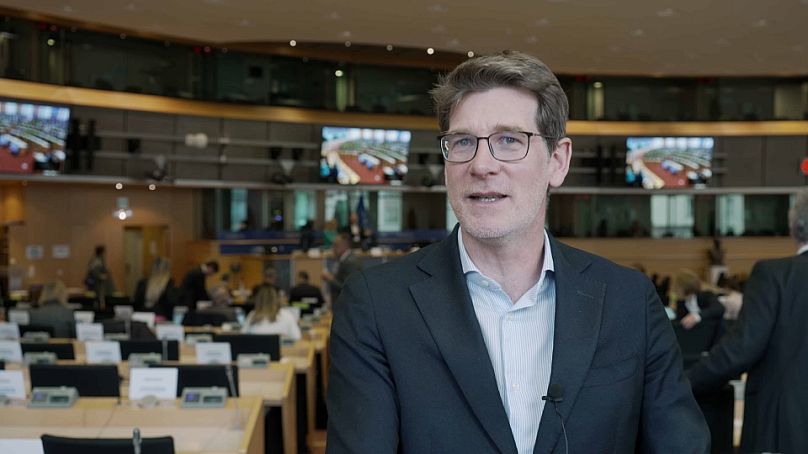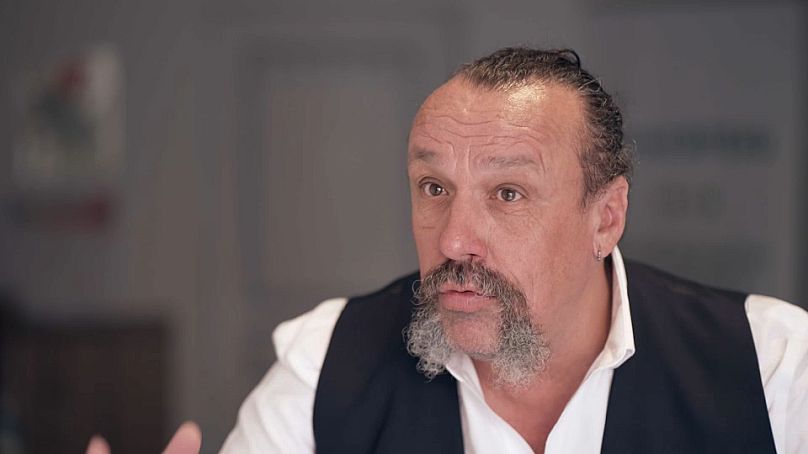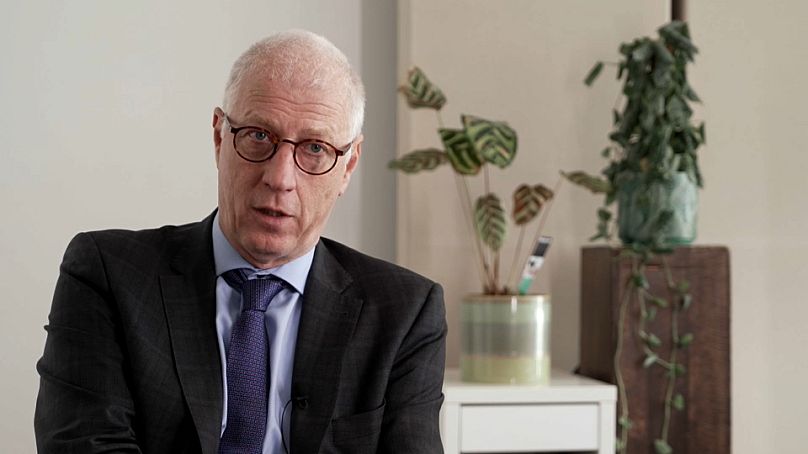France finds itself at a tug-of-war between opponents to megabasins and the agricultural sector.
In the west of France, the Marais Poitevin, France's second largest wetland, is the epicentre of the conflict surrounding water reservoirs for agricultural irrigation. Opponents of these gigantic reservoirs call them "basins" or "megabasins".
Wherever these projects see the light of day, resistance is being organised against these reservoirs, which are accused of plundering groundwater resources.
Firstly, on the legal front, environmental associations have had several replacement reservoirs declared illegal because of inadequate impact studies; secondly, on the direct action front, with the sabotage of several of these reservoirs.
The final front was mass mobilisation. On 25 March 2023, for example, a banned demonstration in Sainte-Soline brought together between 6,000 and 30,000 people, and marked a historic turning point in the fight for access to water.
Firstly because of the scale of the project, and secondly because of the images of the clashes between the police and demonstrators, which left more than 200 demonstrators injured.
A few weeks later, we met up with Mathieu, an activist with "Bassines Non Merci", in the Deux-Sèvres region of France. It's no coincidence that the movement has moved towards more frontal methods:
"For four years, we've swept up all these possible fields of action, with mobilisations, conferences, round tables and public debates," Mathieu explains.
"We can see that, despite this, dialogue is not possible and that the first projects are starting; effectively, at this point, there is also an evolution in our form of mobilisation," he acknowledges. "But that doesn't mean we can't continue to call for a reopening of dialogue and a moratorium, because that's the only way we think we can get out of this," he says.
Joëlle Lallemand, the President of the APIEEE (Association de Protection, d'Information et d'Études de l'Eau et de son Environnement) gives us her point of view: "There are still preserved areas [in the Marais Poitevin], but they are shrinking because the trend everywhere for years has been to destroy wet meadows and replace them with corn," she explains.
Jean-Jacques Guillet, spokesman for "Bassines Non Merci", adds: "Before making basins, it would be better to restore these wetlands, which serve both to store water and to clean it up. If we have to find solutions to mitigate global warming in the future, the solution is not to put groundwater in the sun, but to do everything possible to put water back into the soil: that's where it's at its best, protected from light and pollution," he points out.
In practical terms, a basin is a hole several hectares in size covered with strong and impermeable tarpaulin sheets. In these, water is stored to water farmland during the summer.
The special feature of these reservoirs is that they are filled by pumping from the water table during the winter months.
Although the system has been in existence for 40 years, it was not until 2007 that the first collective projects, supported by the State, saw the light of day. There are now more than a hundred such projects, both planned and completed, in the west of France.
François Pétorin is a director of the Coop de l'eau 79. This cooperative of 220 farms has a project for sixteen replacement reservoirs, covering an area that includes the Marais Poitevin and the rivers that feed it. Only one has been completed to date.
Eventually, the largest will be the Sainte-Soline reservoir, which the demonstrators detest, and which will have a capacity of over 600,000 m³ of water - the equivalent of 250 Olympic-sized swimming pools.
"I'm a farmer, producing cereals and seeds," explains François Pétorin. "The project was prompted by the major droughts we had in 2005, 2007 and 2003, and the prefectoral decrees [issued] very early on that prohibited us from watering in spring and summer, so yields were penalised and catastrophic, even for wheat," he adds.
"So today, water storage is one of the solutions that will enable us to maintain agriculture in the region," he asserts.
But what kind of agriculture? This is the crux of the conflict surrounding the replacement reserves. Opponents advocate a more environmentally-friendly form of farming, based essentially on rainwater.
Opposing them are irrigated farmers, such as François Pétorin. Irrigated farming accounts for just 7% of French farmland, but uses more than half the water consumed in the country, particularly for growing cereals such as corn.
This irrigation is now under threat from the climate crisis and repeated droughts. Hence the idea of replacing water pumping in summer with pumping in winter, when water is, in theory, more abundant.
This is an idea actively supported by the public authorities, who are providing 70% of the total cost of the Coop de l'eau project, estimated at 76 million euros. By its promoters' own admission, water storage is above all a way of getting round the rules limiting the use of water resources during periods of drought.
An exemption denounced by hydrologist Emma Haziza, who sees it not only as a form of water privatisation, but also as a danger to the entire ecosystem.
"If you want good agriculture, you need a fairly high water table," Haziza explains. "The level of the water table has a direct impact on the quantity of water in the first layers of soil, what we call green water, but it also directly contributes water to all the springs and rivers, and if you cut off this exchange by taking this pocket of water and completely disconnecting it from the environment, you will not only collapse the water in the river more quickly, but all the living organisms behind it," she warns.
According to this researcher, there is a scientific consensus that the basins risk exacerbating droughts and are ill-adapted to the climate crisis.
Unreliable data?
For their part, the Coop de l'eau 79 and the French government continue to support them, basing their position on a report by the French Geological and Mining Research Bureau (BRGM).
According to the report, replacement reserves would have a "limited impact" on groundwater and river flows. A report criticised by several experts and qualified by BRGM itself at a hearing in the French Senate. "We did not simulate the consequences of global warming, nor did we say that we could necessarily draw water in winter," said Michèle Rousseau, President of BRGM.
"This study is based on data from 2001 to 2011, data that are totally obsolete because climate change is starting to be seen from 2016-2017 in France," explained Haziza. "From then on, we're going to start having non-winters and periods when our water tables are no longer recharged," she says.
"In reality," she continues, "it's not even a solution, it's not even a misadaptation, it's becoming downright insane to move towards these solutions. And yet they are being implemented everywhere," she laments.
Despite the protests, the French government is asserting the use of replacement reserves in its plan to implement the new Common Agricultural Policy: an envelope of €45 billion between 2023 and 2027 to support French agriculture.
An 'interest' of the European Commission
Since 2021, anti-pooling campaigners have taken their demands further, to the European level, in the form of a petition, accusing this type of reservoir of violating several European environmental directives.
While the European Commission acknowledges certain shortcomings and says it is taking this case very seriously, it is currently referring the matter to the French courts to ensure that the reservoirs comply with Community law.
Does this augur well for the extension of the basins and the tensions they generate to the rest of Europe?
At the end of April, as they do every month, the agriculture ministers of the 27 Member States met under the aegis of the Council of the European Union. It was their first meeting since the demonstration at Sainte-Soline.
"This is not something we have discussed at this Council, it was not on the agenda, but that may of course change," Peter Kullgren, Sweden's Minister for Rural Affairs acknowledged about megabasins in France. Janusz Wojciechowski, European Commissioner for Agriculture, added: "We are open to discussion on this proposal, which is interesting and worthy of consideration. Potential interest in ponds from Member States and the European Commission.
The weight of agricultural lobbies
What about the European Parliament? We put the question to the chairman of the Environment Committee, Frenchman Pascal Canfin, who says he supports the basins under certain conditions.
"A mega-basin may just be a headlong rush, but if it's linked to changes in farmers' practices, such as switching to crops that need less water, it's a way of securing their transition," he says.
However, according to this MEP, this transition faces a major obstacle – the European Parliament's powerful Agriculture Committee.
"You have opposition to all the European texts that seek to encourage a change in agricultural practices, such as the text on pesticides, the one on nature restoration or the one on industrial emissions from livestock farming," says the MEP from the Renew group.
For decades, agricultural lobbies have been defending the interests of the agro-industry, using food sovereignty and safety as their main argument.
At European level, the lobby that has the ear of the Agriculture Committee is COPA-COGECA.
According to a document from 2018, COPA-COGECA states that water storage "is the most important means of improving water security" and calls for "increased fiscal and financial support" and "a reduction in the administrative burden" to achieve this.
Marco Contiero, agricultural policy specialist at Greenpeace, is not at all surprised by this stance.
"The farmers who are protected and whose interests are at the heart of the work of COPA-COGECA and other lobbies do not represent the majority of farmers," he says.
"They are a very small minority of larger, sometimes truly industrial, farms that are in fact responsible for most of the pollution," he says.
"Yet a committee that is supposed to be looking after agriculture, of course, but that is also supposed to be helping the farming sector in this transition, is stubbornly defending the status quo, and that's a problem!
A structural problem linked to the Common Agricultural Policy
But one man is trying to change things. Benoît Biteau is an agricultural engineer, the owner of an organic farm in France and one of the leading figures in the anti-bassin movement. He is also a Member of the European Parliament and Vice-Chairman of the Agriculture Committee. In his view, the agricultural transition is also coming up against a structural problem, linked to the allocation of financial aid.
"When you look at how public aid under the Common Agricultural Policy is distributed, 80% of the budget is taken up by the 20% largest structures," points out the MEP for the Greens/European Free Alliance.
"The mechanism is that aid is given per unit area, so the more hectares you have, the more aid you get, and it's precisely these large areas that are the biggest users of water," he points out, before adding: "Public aid under the CAP does not sufficiently condition the reduction of pesticides and synthetic fertilisers, which disrupt soil fertility.
"So we are continuing to support agriculture that is moving away from restoring soil fertility, which is the answer, instead of agriculture that is more frugal in terms of consumption of pesticides, synthetic fertilisers and, of course, water," he stresses.
"It's not a systemic response" says the Executive Director of the European Environment Agency
According to the European Environment Agency, groundwater pollution in Europe is mainly caused by pesticides and chemical fertilisers. Agricultural irrigation is the biggest threat to groundwater levels.
As a result, almost a third of groundwater tables are struggling to meet the quantitative and qualitative requirements set out in European regulations. The Agency is therefore calling for the precautionary principle to be respected in strategies for adapting to the climate crisis. A principle that substitution reserves would not necessarily respect.
"This is not a systemic response: it's a band-aid and it's a band-aid that, on top of that, could disrupt and worsen the general state of the local environment and our ability to really adapt to the circumstances of climate change," says Hans Bruyninckx, Executive Director of the European Environment Agency (2013-2023).
"Secondly, the basins are not economically feasible without substantial public subsidies, so it is questionable whether this is an economically realistic way of supporting agriculture," he asks. "More than the precautionary principle, I don't think this is the systemic response the farming system needs," he says.
Yet a systemic change would be in the interests of many farmers. Between 2005 and 2020, 5,300,000 farms disappeared in Europe – that’s almost 1,000 farms a day. 87% of these were small farms of less than 5 hectares.
Faced with a climate crisis that our societies are making worse by the day, ponds have become the symbol of an agricultural model that illustrates the European Union's difficulty in reconciling its environmental objectives with its economic priorities.











